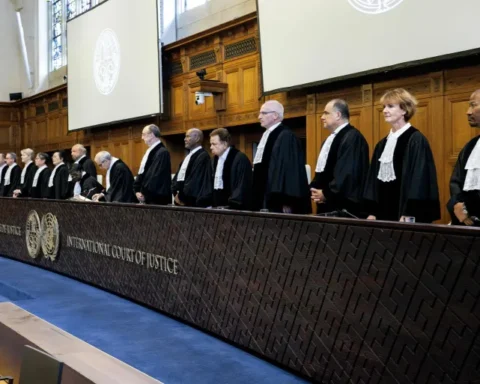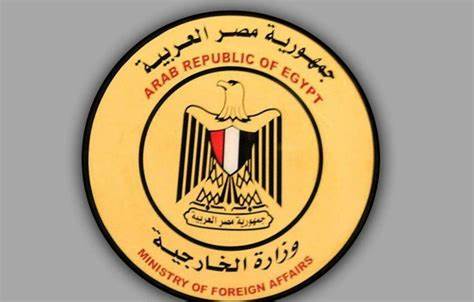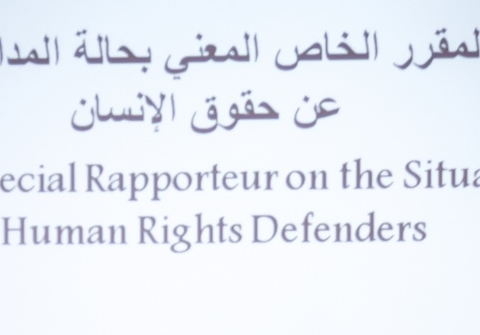Press Release
…………………………………………………………….
Today, Thursday 9/3/2023, the Egyptian Coalition for Human Rights and Development (ECHRD) issues its report on renewable energy and the green economy as two aspects of sustainable development, which deals with several points related to renewable energy and its relationship to achieving sustainable development, especially at the level of Egypt, as follows:
The concept of renewable energy and green economy – New energy sources – Vital sectors in the processes of transition to a green economy: – Advantages of renewable energy and the green economy: – Strategy and requirements of the green transition – Renewable energy as a mechanism for the transition to the green economy – New and renewable energy as a leading sector for the transition to the green economy in Egypt – the international vision regarding the Egyptian efforts in the field of renewable energy and the green economy – conclusion – recommendations.
Sustainable development is the primary and ultimate goal of the whole world, countries and national, regional and international institutions. No one forgets that energy is the main engine and active element for all growth and development. It is the basic element for all sectors of the economy and a companion of human life. It is also not forgotten that most of the energy used in the world is traditional and unsustainable energy, in addition to polluting the environment and causing harmful emissions. Since sustainable development is based primarily on protecting the environment, ensuring optimal use and fair distribution of resources between the current generation and subsequent generations, it has become obvious and necessary to move away from fossil fuels or traditional energy that impedes the achievement of sustainable development by accelerating the phenomenon of global warming, and turn to clean energy, in light of the increasing global consumption of energy due to the increase in the rate of population growth, urbanization and industrialization.
Therefore, renewable energy sources are currently receiving great international attention for their important role in achieving sustainable economic development, especially because of their role in achieving energy security. The demand for achieving Sustainable Development Goals (SDGS) has become global and sought by all countries. This includes reducing poverty and achieving social justice, in addition to supporting economic growth and environmental sustainability
Strategy and Requirements of Green Transition
Transitions to a green economy require many necessary assumptions, which aim to facilitate the transition to a green economy, including:
- Adopting the perspective of the social dimension through having a clear and well-defined global vision of work in order to create good jobs (working conditions, development of career paths, level of wages, etc.).
- Ensure the integration of social partners at all levels.
- Avoid neglecting non-green activities, ensuring overall consistency between functions; In the sense of clarity and stability of various projects and strategic decisions.
- Creating and enabling favorable conditions in the context of internal regulations and policies while providing elements of material support, incentives, legal structures, international trade and aid and trade protocols.
- Ensure that institutions master the technology and have the necessary skills, with the need to acquire new skills in order to obtain a system of continuing education.
- The state should develop the countryside, by paying attention to agriculture, preserving forests, using them as important resources in the state, and improving the standard of living of the rural population.
- Paying attention to water resources, treating unclean water, rationalizing consumption, preserving water resources, and protecting them from pollution.
- Reviewing government policies, making them subject to the green economy system, and adapting market policy to it; to encourage production.
- The green economy must recognize the national policy on natural resources, focus on its efficiency, and make production permanent and sustainable.
- The state should address the problem of waste, work to treat it, recycle it, and turn it into a resource, instead of causing pollution to the environment.
- Supporting the public transportation sector, improving education and encouraging innovation.
The report concluded with a set of recommendations as follows
- Accelerating the transition to renewable energy. It is important to spread awareness of the importance of the transition to the use of renewable energy and work to expand this use by drafting legislation that stimulates investment in the renewable energy industry and encourage private sector investment in renewable energy projects by providing loans at low interest rates and reducing fees and taxes on green energy technologies.
- Encouraging cooperation in multidisciplinary research in the fields of energy while spreading awareness among members of society, by organizing intensive campaigns dealing with energy conservation and environmental sustainability.
- Ensuring a national hydrogen strategy that prioritizes national development while protecting Egypt’s economic and political dominance as the largest economy in the Middle East. The development of hydrogen in Egypt is vital and will involve addressing a number of issues, including modernizing existing technologies to provide hydrogen at a reasonable price. A national strategy should be developed on the basis of further investigation and evaluation in three main areas: global energy knowledge, blue hydrogen extracted from natural gas, and green hydrogen extracted from renewable sources.
- Supporting innovative ideas in the fields of renewable energy by the state and the private sector, in order to reduce the gap between research activities and applied reality.
- Reducing energy consumption in buildings through modern energy systems.
- Relying on highly efficient means of energy storage.
- Relying on saving technologies in the treatment of sea water, rain and drainage.
- Expanding the use of renewable energy systems for various tourism projects, especially water pumping and desalination, as they consume large amounts of energy.
- Encouraging investment in new and renewable energy projects and businesses of an economic nature that contribute to the process of sustainable development.
- Using solar energy systems in remote villages and agricultural areas, to reduce the cost of transporting fuel needed to produce electric power.
- Increasing attention in media awareness; To educate the community about the importance of the role of the metro, trains and environmentally friendly means of transportation in: raising the level of traffic safety, enhancing air quality, protecting and improving the environment, and protecting the enormous gains of infrastructure.
- Developing incentive policies for the success of public transportation projects and limiting the use of private cars, the most prominent of which are: that ticket prices be affordable to segments of society, especially those with low incomes, and keenness to facilitate the use of environmentally friendly public transport, and strict commitment from the outset to preserving the environment, and imposing fees on those who pollute the environment.
- Learning from international experiences. Egypt would benefit, for example, from the German experience with regard to the state’s temporary support for solar energy, which contributed to increasing the use of solar roofs, in addition to encouraging the use of solar air conditioning through the banking system, as is the case with the German Development Bank. Egypt can also learn from German financing methods and economic policies, including carbon emissions certification and tax incentives.
- Finally, since Egypt has a plan to phase out fossil fuel subsidies, the legislation could focus on targeting subsidies in favor of the renewable energy sector, known as green subsidies, to promote the transition to net zero carbon emissions. A green subsidy is a unique type of financial incentive and tax instrument aimed at improving environmental quality and natural resources. In 2017, the International Renewable Energy Agency estimated green subsidies to be around $167 billion. It is estimated that EU countries received about 54% of all green subsidies, followed by the United States (14%), Japan (11%), China (9%) and India (2%), then the rest of the world with a share of 9%. The majority of this green support is directed to the development of energy-saving technology and green energy alike to reduce the impact of carbon dioxide emissions








